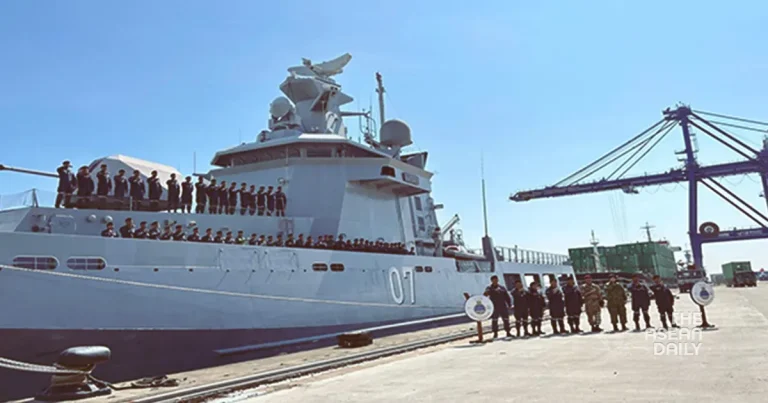25-7-2024 (JAKARTA) Indonesian Army Chief of Staff Gen. Maruli Simanjuntak unveiled plans for more extensive joint military exercises with Southeast Asian nations and China, while also addressing contentious issues surrounding the revision of the military law and the development of the country’s defense industry.
The four-star general, who assumed his top army post in November, expressed a desire to build stronger partnerships with a diverse array of countries, including the United States, European and African nations, and “especially” with fellow members of the Association of Southeast Asian Nations (ASEAN).
“We’re facing largely the same problem in ASEAN,” Simanjuntak remarked, alluding to the ongoing tensions over the South China Sea between some members of the regional bloc and China.
ASEAN’s first joint maritime exercises, dubbed ASEX 01-Natuna, were held last November, involving troops from across Southeast Asia amid rising frictions in the disputed waters. Simanjuntak underscored the value of such joint drills, stating, “The more we do [joint] exercises, the more knowledge we get,” emphasizing the importance of improving military and defense technology capabilities in the face of escalating geopolitical conflicts.
However, the army chief stressed that the primary purpose of joint exercises is to enhance diplomacy and communication between the armed forces of participating countries, enabling better coordination “if incidents happen.”
Separately, Simanjuntak revealed that the Indonesian army is preparing to conduct a joint exercise with China, which could commence as early as next year. This development follows a meeting between Prabowo Subianto, Indonesia’s defense minister and president-elect, and Chinese Foreign Minister Wang Yi in Jakarta in April, where discussions on military exercises and defense industry cooperation took place.
According to Simanjuntak, the Indonesian military is currently in the process of designing the types of exercises needed, indicating that “We’ll try to make suggestions” to China.
Despite maritime tensions between Jakarta and Beijing near the Natuna islands, on the southern edge of the South China Sea, Indonesia has maintained a non-aligned stance, refusing to take sides in the intensifying rivalry between China and a United States-led Indo-Pacific bloc.
Simanjuntak also disclosed that the Indonesian army has been discussing plans for separate drills with the United States later this year. Indonesia and the U.S. have held their Garuda Shield exercises annually, with the armies of each nation participating, and in recent years, the drills have expanded to include other military branches and countries. Last year, six nations, including U.S. allies Japan and Australia, sent troops to the event, with nine others attending as observers.
Turning to domestic matters, the army chief addressed concerns surrounding the ongoing process to amend the 2004 Law on Indonesian Armed Forces (TNI). Civil society groups have accused the military of seeking increased civilian roles and a removal of the ban on soldiers engaging in business activities, drawing comparisons to the “dual roles” of the military under the authoritarian New Order regime led by late president Suharto.
Simanjuntak denied that the latest draft of the amendment includes the removal of the ban on military businesses but admitted that the military seeks more roles in government offices and other state institutions. He argued that many soldiers have received overseas educations and are well-versed in economics, law, and management, stating, “We are now a democratic state with improving rules of law. We think some military people deserve better quality jobs, and hopefully they can help the ministries and [other state] institutions. That’s all. No need to connect these to the New Order [concerns over the return of powerful military.”
He added that the military is also seeking an extension of the soldiers’ retirement age to 60 years old from 58, arguing that they are more physically fit than the general public at that age.
As a potential candidate for the next TNI commander, Simanjuntak shared his expectations of expediting the modernization of Indonesia’s military equipment and weaponry, as well as developing a domestic defense industry under the leadership of Prabowo. The defense minister and former army general will be sworn in as president, replacing Joko “Jokowi” Widodo, in October.
Simanjuntak stated that Prabowo wants to build more munition factories in Indonesia and is seeking technological support and cooperation with other countries to develop domestic defense industry capabilities. He added that China, Turkey, and the United States are among the nations that have expressed interest in partnerships, despite “certain limitations.”
“Indonesia has built a lot of infrastructure,” Simanjuntak said, “which means there should be money set aside now for the military.”




